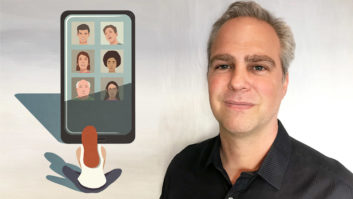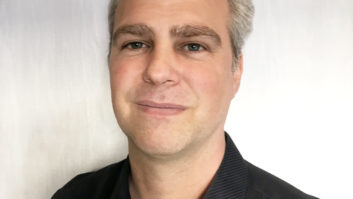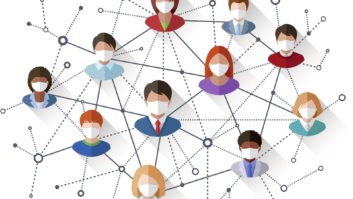
Times are strange. We’re eight months into the pandemic now and my crystal ball stopped working months back, so this article isn’t about predicting what may happen next. Instead, I’m going to talk about what you can do next. What you do is something you can control; everything else is just hoping and waiting.
It’s time for live sound pros to start forming a backup plan. Already, many of your peers have pivoted. We live in a country where it’s common for A-list professionals to drive for lnstacart, having gone from mixing top-grossing world tours before COVID-19 to delivering groceries today. And I’m not slagging that decision by any means. We are resilient by nature and we do not sit still or lay down; we take care of our families and we meet our responsibilities.
We also sometimes wonder why our skills don’t translate to more corporate jobs, or we simply don’t know how to land those gigs. We’re highly skilled and highly specialized-so how do we make that transition, even if it’s only temporary?
The first thing we need to do is to acknowledge that we’re fairly self-encapsulated. The people we typically know and work with are in the same boat we’re in. The manufacturers that service the touring industry-the ones we’ve built relationships with over the years-have their own hardships that they are dealing with. The whole industry is challenged, so we’re not going to find a real break in our immediate circle. We’re going to have to stretch to that second-tier level, and nobody likes doing that.
Actually? Nobody likes networking at all. Ever. Even in the best of circumstances, it always feels forced and awkward, but I’m telling you that you need to network with second- and third-tier acquaintances, and not even under normal terms. It’s not like right now you can grab a beer, catch a game and talk shop.
Come Back Better, Stronger and Smarter
Here’s the good news: It’s not as bad as it sounds. And when done authentically and effectively, networking is a skill that enables others and puts people at ease. It’s a way to solve problems while making people feel comfortable. It’s best to think of it like hosting a party or putting together a show. It’s a skill that can be learned and developed over time; it just takes practice and focus. There are scripts to follow and rules to obey. No one is a natural born networker. It is not an innate skill that you either have or you don’t.
The reason nobody likes networking is because it’s often phony. People talk about things they don’t care about while collecting business cards like a hobby. People treat it selfishly, always thinking about how this new person can help them. So here’s my advice: Flip it all and do it differently. Only talk about the things you already passionately care about. Be genuine. Be honest. Be open and transparent. Just be yourself. And find a way that you can help and be of service. Find some commonality and some overlap so you can share something that matters, something meaningful. Find a way to add value.
With this mindset in place, it’s not so hard to call on people you barely know. Check in on them and see how they are holding up through all of the changes. They’re impacted in one way or the other-we all have that in common right now. Just use the excuse that you finally had extra time to reach out and that you wanted to say hi. Don’t ask anything from them. Just ask how they are doing and if there is anything that you can help with. Don’t forget—in their eyes, you’re that person who has one of the coolest jobs on the planet. You’re the person they’ve been waiting to talk to and to get to know. And you’re calling them!
Do that once a day for the next month. Call 30 new people who you don’t normally talk to. Take the time to log your notes, follow up on any commitments that you made, and keep looking for ways you can add value. Then let me know how it turns out.
Mike Dias writes and speaks about What Entertainers Can Teach Executives and Why Nobody Likes Networking. He is the executive director for the In-Ear Monitor International Trade Organization and the vice president of sales for Earthworks Audio. He loves to trade stories, to talk shop, and to hear about your networking successes and failures! mike@inearmonitor.org.




